Some of us are good at languages, others less so. What if your parent were a language teacher? Is it like having a personal coach all the way?
We speak to teachers of English and three Mother Tongue Languages to find out what they do as parents when it comes to inculcating a love for the language at home. They share what works for them and their children!
1. We go café-hopping then library-hopping!”
Mdm Hairani Asir, Recipient of the Arif Budiman Malay Language Teacher Award 2023
There are 26 public libraries in Singapore. Mdm Hairani Asir’s family has been to all of them.
The teacher from Punggol Primary School was looking for a way to entertain her children over the weekends, spend time together, and introduce them to the joy of reading. “We started a library-hopping tradition,” says the mother of two children aged 3 and 9, “inspired by our same love for café-hopping!”
During the library visits, she would let them explore the children’s section on their own. They always come back with stacks and stacks of books they find appealing.
“These could be books with colourful covers, comic series… Sometimes even books in Mandarin or Tamil,” she laughs. They would then sit as a family, and she would read aloud to them “if the book is in a language we understand”.
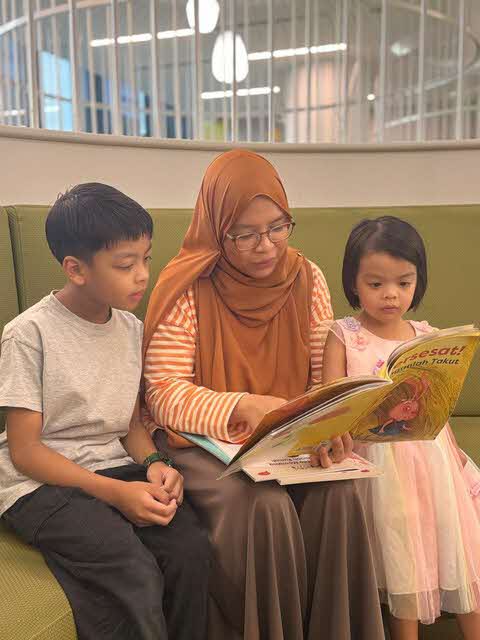
When it is Mdm Hairani’s turn to pick out a book, she selects Malay language books, with the goal of introducing them to their Mother Tongue. She picks books that suit their age, reading level and interest.
After reading a few pages, she asks her children if they would like to read the same pages back to her. “To our surprise, even our younger daughter insists on having a turn to read aloud.”
“Sometimes, she insists on role-playing as a teacher and tries teaching the older brother how to read Malay books,” says Mdm Hairani. “This is in spite of her having to pause often to ask me how to read certain words. It’s heartwarming that the older brother plays along as well and reads together with his younger sister. He is patient, and will gently guide her in her pronunciation.”
She adds, “At such a young age, our children want to feel empowered and supported. From picking the library to go to, to selecting the books to read, and ultimately reading them as a family unit – these contribute to growing a love for each other, and also the language!”
2. “I show him how powerful words can be”
Mr Peter Chutatape, Recipient of the MOE Inspiring Teacher of English Award 2024
Once, Mr Peter Chutatape and his 6 year old son were laughing hysterically over a joke. When the laughter died down, “I asked him how that joke made him feel”, says Mr Chutatape, a lead teacher from Bukit Panjang Primary School. His son replied that it makes him happy.
Every time they read or watch a movie together, Mr Chutatape asks his son how he feels. “This helps him realise that words have the power to evoke different feelings and emotions,” he explains. It also stimulates his creativity with language.
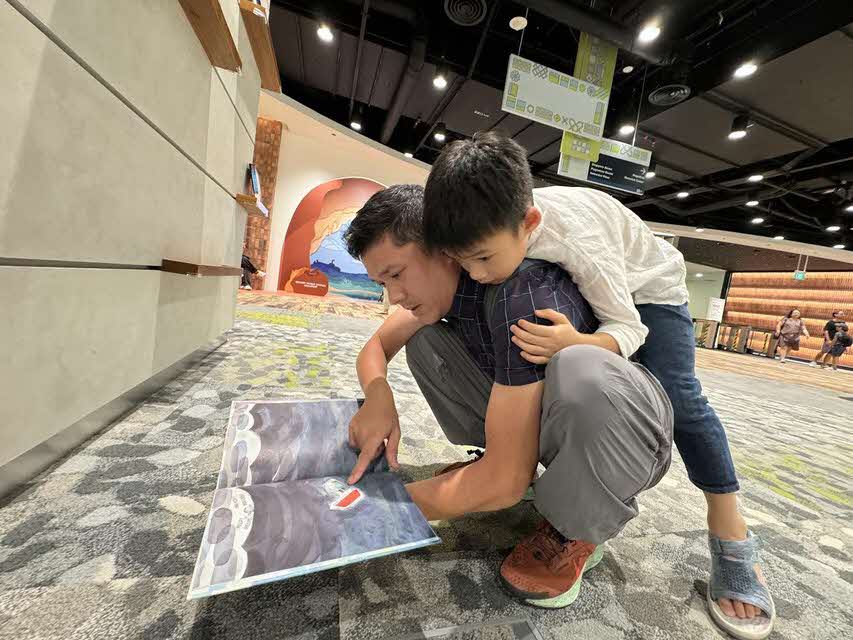
One time, his son said, “Papa, I love to you from the sun to Basement 1000 of Star Vista.”
Bewildered, Mr Chutatape then realised the boy was inspired after reading I Love You To The Moon And Back by Amelia Hepworth, and borrowing from the book’s literary devices of metaphor and hyperbole. “I made sure to let him know how touched I was and how I loved the imagery!”, he says, to which the boy gleefully replied, ‘I’ll come up with more!’”
3. “They are the biggest critics of my work”
Mr Sethu Raman Ramesh Raja, Recipient of the Most Inspiring Tamil Teacher Award 2024
Mr Sethu Raman Ramesh Raja’s Tamil poems have been published in books. Who gets to see the poems first? “My biggest and most valuable critics,” says the teacher from Boon Lay Secondary School.
He is referring to his two children, aged 12 and 17, whose unfiltered questions and curiosity help him refine his works. It also starts interesting conversations around language.
“It’s a humbling and interesting process, which I enjoy,” says Mr Sethu. “They ask me questions about the characters and scenarios. We also talk about the analogies and different ways of expression. We explore how specific Tamil words that I use can subtly shift the readers’ perspective.”
In turn, his children also send interesting snippets of Tamil novels and poems they come across. “Our family WhatsApp chat group is filled with screenshots of short stories that my children find intriguing and want to share with the rest of the family.”
“I’d like to think that their critique of my work from a young age helped them develop the confidence to read more critically, and identify types of writing that they like,” he says.
“One of my most heartwarming moment for me was when my children wrote their own Tamil poems for me as a Father’s Day gift last year. It still remains the most memorable present.”
4. “Our bedtime stories were about them!”
Ms Tay Hui Cheng, Recipient of the President’s Award for Teachers 2022
The bedtime stories that Ms Tay Hui Cheng used to read to her two children are different from any that we know – because she made them up herself.
“Our bedtime stories were told in Mandarin, and I would tell the story of ‘Da Da’ and ‘Da Mei’,” says Ms Tay, Vice-Principal at Geylang Methodist Secondary School. “I didn’t need a book because the storylines are based on the fun and silly things my two children would get up to in the day.”
She saw how much more engaged they were when the stories seemed to reflect their experiences in real life. “After a while, my children connected the dots and went, ‘Hey… this plot sounds familiar. It’s us!’. That was a funny revelation for them.” After that, they enjoyed the bedtime stories even more.
The personalised stories also provided them with opportunities to discuss their feelings and actions. “We would always have a good laugh over the day’s events and learn from any mistakes we made.”

While her children are now teens age 15 and 17 and their bedtime reading days are over, Ms Tay occasionally brings up the antics of “Da Da” and “Da Mei” for a good laugh.
“To me, learning and enjoying a language is about having fun. Most people expect my children’s Chinese grades to always be A1 just because I’m a Chinese teacher. They are not, but I am proud of them as long as they put in their best effort and not give up.”
“After all, learning their Mother Tongue language is for life, not just for an exam!”



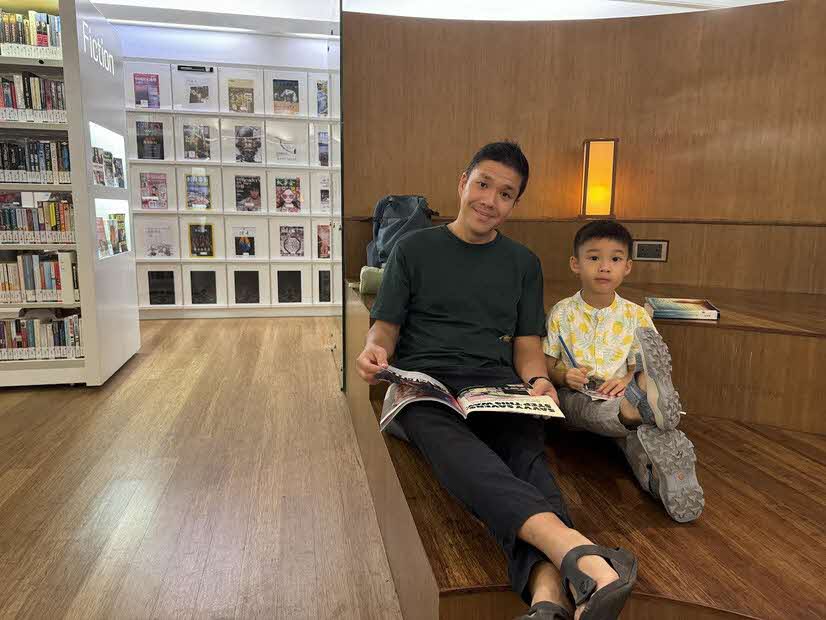
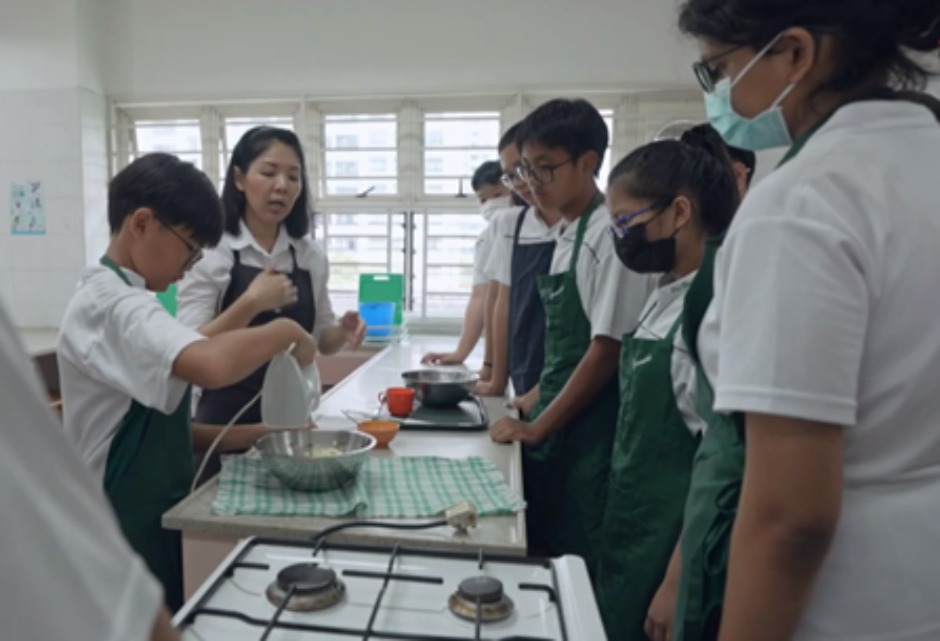
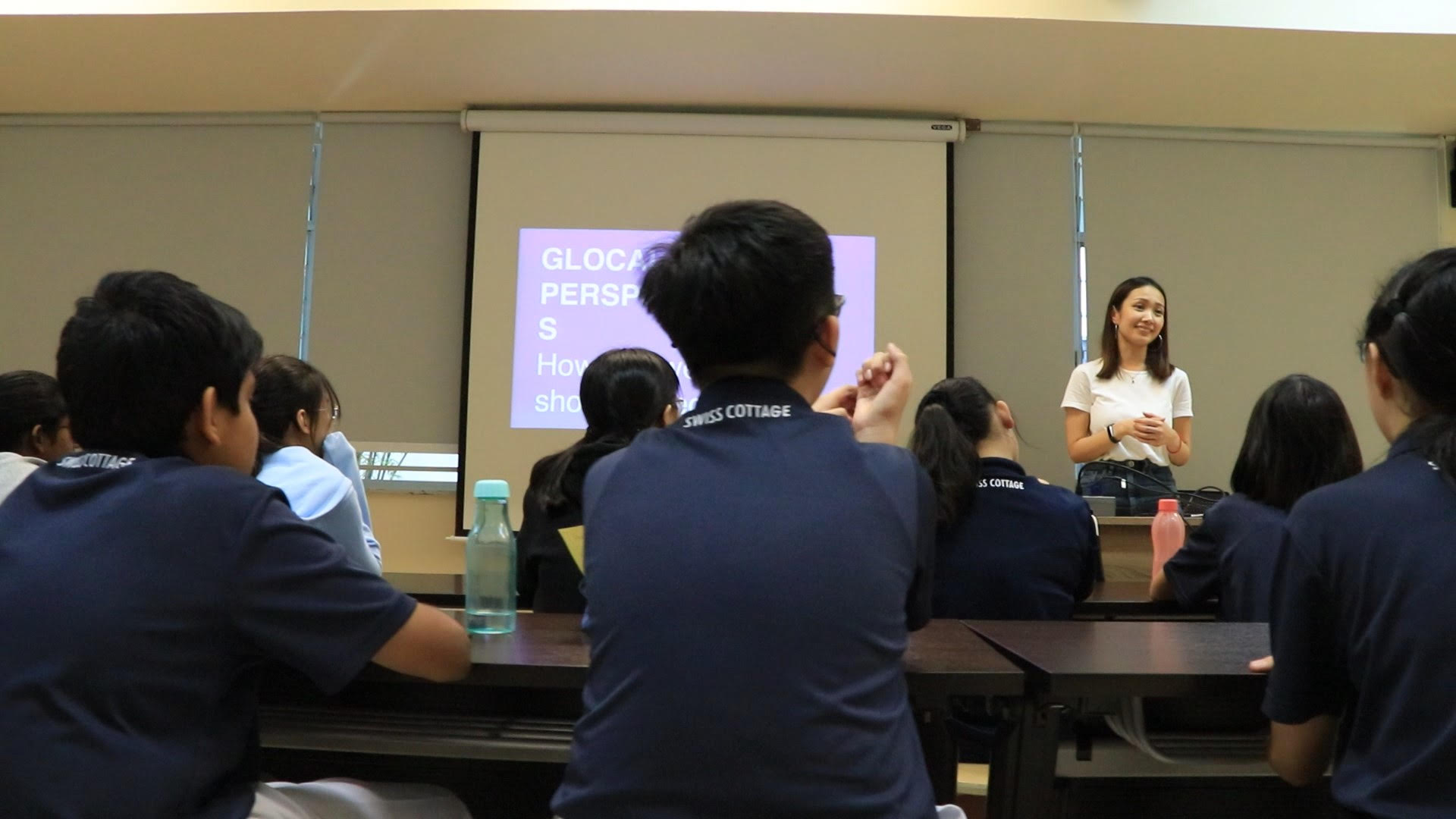
.jpg)